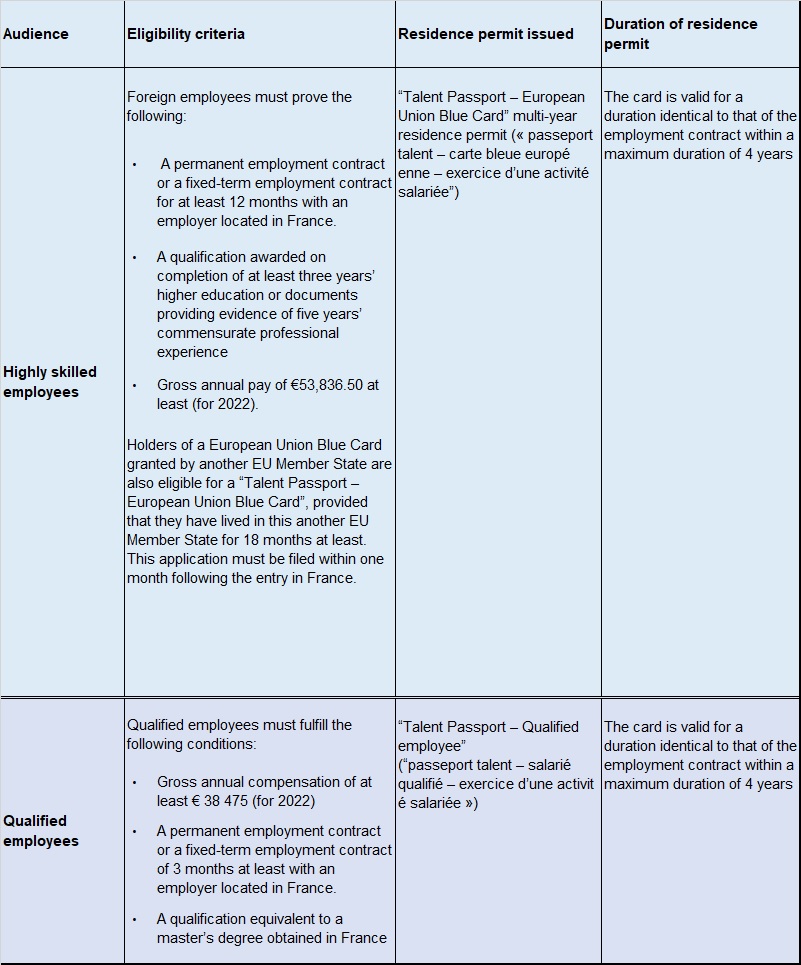
INTERNATIONAL TALENTS AND FRANCE’S ATTRACTIVITY
Part 1
Mr Olivier MANDEL, Attorney-at-law admitted to the Paris Bar (France), from MANDEL-ASSOCIES Law firm will talk about “International Talents and France’s Attractivity” in the series of articles consisting of 4 chapters.
In today’s article, he will be talking about the Talent Passport specifically for highly skilled workers.
1. INTRODUCTION
France is an attractive destination for international companies. As members of the Organisation for Economic Co-operation and Development (OECD), France and Japan have a special and very old relationship. French and Japanese companies share a growing interest in investing in each other’s markets and developing their businesses abroad.
According to the annual report 2020 “Foreign Investment in France” from Business France, France attracted 1,215 new foreign investment decisions in 2020, a -17% decline on 2019, versus -33% worldwide. The crisis interrupted the positive momentum of 2019 but has not challenged the attractiveness of France as an investment location[1].
Notwithstanding the health crisis, there is renewed confidence in France as an investment location, with 90% of the executives of foreign businesses set up in France drawing a positive impression of their investment in France, according to the Business France/Kantar survey on France’s attractiveness. Moreover, nearly nine in 10 chief executives (85%) believe that France is an attractive foreign investment destination.
In this context, many Japanese companies consider either hiring local workers or posting Japanese skilled employees who are already working for the Japanese mother company to expand their French activities.
Employers who wish to do so must comply with French labour and immigration regulations governed by the Labour Code (Code du travail) and the Code for the entry and stay of foreigners and the right to asylum (CESEDA). Breaching these legal obligations could expose companies to heavy administrative fines and lawsuits by the French administration. A Japanese worker who wants to work in France for more than three months must apply for a residence permit (“titre de séjour”) and be granted a work permit (“autorisation de travail”).
[1] https://www.businessfrance.fr/discover-france-news-annual-report-2020-foreign-investment-in-france
A visa is also required for entry and must be obtained in Japan (your country of residence) before the departure. However, several categories of employees holding an employment contract with an employer established in France may be eligible for a specific residence permit called Talent Passport permit (“Titre de séjour Passeport Talent”).
This specific residence permit has three main advantages:
- His/her holder could, in certain cases, stay and work in France for as long as 4 years;
- The applicant who fulfills the legal conditions to obtain a Talent Passport permit will not need to apply for a separate and distinct work permit (“autorisation de travail”). Indeed, the fact of having a Talent Passport permit is equivalent to a work permit;
- The holder of the Talent Passport permit can be accompanied by his/her family who will benefit from a multi-year residence permit. It will authorize your spouse and your child or children in their 18th year to exercise a professional activity. Your family can benefit from the simplified accompanying family procedure (“procédure simplifiée famille accompagnante”). They can therefore obtain a residence permit without applying for family reunification (“regroupement familial”).
No additional administrative steps are necessary.

2. THE HIGHLY SKILLED EMPLOYEES ELIGIBLE FOR A TALENT PASSPORT PERMIT
Several categories of employees are eligible for a Talent Passport.
This series of four articles will go through the main categories which are: highly skilled employees, employees transferred within a group, qualified employees, employees of a young and innovative company, and researchers.
The first part of the article will review the requirements for highly skilled employees and skilled employees with lower qualifications, referred to as “Qualified employees”.


3. PROCEDURE
For each category of Passport Talent Residence Permit, it is important to note that if the Japanese employee is living in Japan before coming to France, and if the duration of his/her French stay is less than 12 months, the French Consulate based in Japan will issue a long-stay visa equivalent to a residence permit (VLS/TS) bearing the mention “Passport Talent”.
When you arrive in France, you must have it validated within 3 months.
If the duration of the French stay is equal to or greater than 1 year, the Consulate will issue a long-stay visa bearing the mention “Talent Passport” for a period of 3 months.
When the Japanese employee arrives in France, he/she must go to the Prefecture of his/her place of residence to receive his/her residence permit.
In all cases, taxes will have to be paid to the French State, and official forms will have to be fulfilled and transmitted to the Administration together with pieces of evidence translated in French. In this connection, the assistance of a specialized French lawyer is highly recommended.
Olivier MANDEL
Attorney-at-law admitted to the Paris Bar (France)
MANDEL-ASSOCIES Law firm
In the next article, Mr Mandel will explain about Talent Passport residence permit issued to employees of a young innovative company and to employees transferred within a group.
If you would like to consult specific cases, please contact MANDEL-ASSOCIES Law firm from HERE.
